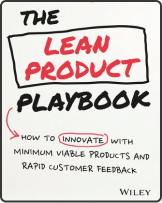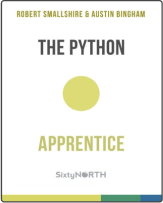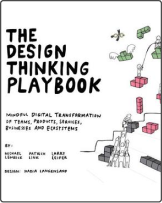Why Entrepreneurs Must Develop a Growth Mindset (and How to Do It)

In order to craft success, entrepreneurs must develop a certain mindset — a growth mindset. In short, an entrepreneur with a “growth” mindset is able to learn from mistakes and use them to “grow” their business, whereas those with a fixed mindset might dwell on failures and see setbacks as a reason to give up.
Let’s take a look at 5 ways that entrepreneurs can develop a growth mindset and drive their ventures on a road to success.
1. Embrace All Challenges
If you beat a challenge, you reap the rewards. If you don’t, you learn some valuable lessons, so there’s always a bright side to embracing challenges — as long as you don’t fear failure and you instead have a strong desire to learn new things.
If you avoid challenges you’ll never grow as an entrepreneur, and your business will follow suit. Remember, entrepreneurs with a fixed mindset have an intelligence that is static, but those with a growth mindset have an intelligence that can be developed.
If you don’t embrace challenges, you’ll never achieve higher things, and this concept applies to all aspects of life.
2. Expect Setbacks and Learn to Power Through Them
Setbacks happen, you have to expect them. Where things become tricky is when you dwell on the reasons for failure and give up as a result, often blaming yourself in the process and gradually killing your own self-esteem. Persisting in the face of setbacks will help you develop a routine of falling down and getting right back up — smarter, wiser and more experienced than before.
When you develop this routine of powering-through, future setbacks will start to feel like nothing more than a bug on a windshield, and you yourself become stronger than ever before. It’s perfectly okay to contemplate the reasons for failure, because that’s how we learn to do better next time, but if you beat yourself up over it you’ll develop a fear of trying.
3. Realize That Your Efforts Are Fruitful
You should never focus on an ultimate goal for two very important reasons. Firstly, you’re acknowledging the fact that achievements are finite, which they’re not. Secondly, success rarely happens overnight — it can take months or even years. You need to focus on smaller, more easily achievable milestones, otherwise your efforts will always seem fruitless.
Patience is a virtue and it’s hugely essential for a growth mindset — always celebrate the smaller milestones and leave the ultimate goal at the front of your subconscious. Priorities!
“Keep your concentration here and now where it belongs.” — Qui-Gon Jinn, Star Wars.
Who are we to argue with the most mindful Jedi that ever lived?
4. Listen to Criticism and Use it to Improve Your Business
Criticism isn’t a bad thing if you’re using the feedback to improve your business. Sure, criticism may hurt at times but it’s very useful. If you are to develop a growth mindset, customer feedback is something that you can’t ignore. At the end of the day you’re building your business for an audience, and so who is better to help refine your business if not the audience itself?
If you need some inspiration, read about Pieter Levels and how he bootstrapped 12 Startups in 12 Months by conquering fear of disapproval, listening to feedback and focusing on “the next version” rather than “the finished version”. With a growth mindset there is no finish line — there is always room for more improvement.
Pieter has begun to write a book about growing, launching and monetizing your ideas. It’s not technically finished yet but you can pre-order it here to receive a first draft. Your feedback can have a significant impact on the final content of the book, so he’s basically applying the theory of a growth mindset to sell his book on growth mindsets!
5. Let Others Inspire You With Their Success
You shouldn’t feel threatened by the success of other entrepreneurs, instead you should let it inspire you. Better yet, you should reach out for advice! Sharing is caring and the best entrepreneurs know when to ask for help, and when to reach out and help others. Successful entrepreneurs are rarely ever as confident as they seem; they deal with the same self-doubts as you do and we all suffer from a little Imposter Syndrome sometimes. Jealousy will only make you feel more inadequate or fraudulent — you need to shake it off.
Besides that, a growth mindset can convert you from an introvert to an extrovert. When you reach out to others for advice, not only do you learn from the wisdom of others, but you’re acquiring new friends, new connections and better social skills.
Conclusion
You can apply a growth mindset to almost anything. As a writer I tend to craft outlines first, then add some notes, then expand on the notes, and then create a first draft, touching on multiple aspects of an article simultaneously and asking for feedback at various stages along the way. Perfectionists, on the other hand, are usually very secretive and tend to aim for home runs, and this trait is synonymous with a fixed mindset. However, those with growth mindsets are more extroverted and comfortable with receiving critical feedback, and therefore tend to mature and monetize their businesses much faster.
For further reading on the topic of developing growth mindsets, I’d highly recommend Mindset: How You Can Fulfil Your Potential by Carol S. Dwek (PhD).
It’s quite possible that you’ve considered yourself to have a growth or fixed mindset, but you didn’t know that the two terms existed. Now that you know, here’s my question: if you have a fixed mindset, what’s the main thing that’s stopping you from developing a growth mindset, and if you have a growth mindset, what was the single thing that you did to change your mindset?
Let me know in the comments below!



